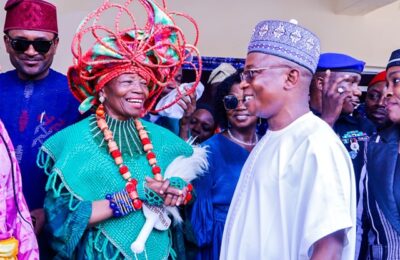As Yahaya Bello’s former ally, Edward Onoja’s story is more than personal betrayal — it is a mirror of Nigeria’s deeper crisis of trust, timing, and truth in politics.
When power turns treacherous, it rarely announces itself with a whisper; it erupts with the thunderclap of betrayal. The political odyssey of Chief Edward Onoja, once the trusted civilian lieutenant of Yahaya Bello in Kogi State, now stands as a parable of Nigeria’s fractured covenant between leaders and the led. What was once sealed with promises of succession has decayed into silence, exclusion, and bitter recriminations — raising the age-old dilemma: is this merely kicking the mule after the damage is done, or offering medicine to the dead? In Onoja’s lament lies a broader indictment of a political culture where loyalty is expendable, truth is delayed, and justice often arrives too late to matter.
The tragedy is not in Onoja’s exclusion alone but in the theatre of Nigerian politics where betrayal has been normalized as strategy, and where alliances are forged in convenience and discarded at whim, making the collapse of loyalty less a scandal and more a tradition. This normalization of treachery corrodes public trust and leaves electorates trapped in a cycle of dashed expectations. If the betrayal of a deputy governor can be so swift and unrepentant, what hope remains for the ordinary citizen whose voice is but a reverberations in the chambers of power? Myles Munroe once warned, “The greatest failure in life is to succeed at the wrong assignment.” Nigeria’s leaders may succeed in silencing their allies, but they fail in the higher assignment of preserving trust, integrity, and continuity.
The metaphor of “medicine after death” captures more than just Onoja’s personal grievance; it embodies the futility of posthumous gestures in governance — the half-hearted apologies, the empty reconciliations, the projects hurriedly commissioned when legacies are already tainted. Nigeria’s democracy has become accustomed to cures that arrive too late, palliatives that comfort no one, and policies that resemble bandages on wounds already gangrenous. In such a climate, timing is not just a virtue; it is the currency of survival. Bishop David Oyedepo once declared, “Timing is the key to destiny. When you miss your timing, you can miss your throne.” What Bello denied Onoja was not merely a seat in government but the timing that determines political destiny.
Yet the greater question looms: what does this saga teach about the moral compass of leadership? In politics, as in life, broken promises are never neutral; they exact a cost on the soul of society. Edward Onoja’s lament is therefore not merely the cry of a wounded ally but a mirror reflecting the nation’s chronic ailment — a governance that rewards cunning over candor and survival over sincerity. To dismiss his plight as mere political drama is to miss the larger narrative: Nigeria is a country where trust repeatedly dies at the altar of ambition. Prophet T.B. Joshua once remarked, “When you betray someone who trusts you, you also betray yourself.” Nigeria’s leaders often forget that betrayal is a double-edged sword — it wounds the betrayed but it also destroys the betrayer’s moral legitimacy.
History reminds us that betrayal is the oldest currency in the marketplace of power. From Julius Caesar who fell to Brutus, to M.K.O. Abiola abandoned by allies at the critical hour, the knife of treachery has often been plunged deepest by those closest to the throne. What makes the Onoja-Bello drama remarkable is not simply that a promise was broken but that it was broken so brazenly in a state yearning for political healing. Kogi is not just another Nigerian state; it is a microcosm of the nation’s struggles with identity, balance, and trust. In such a delicate ecosystem, loyalty should be gold, but it was treated as scrap metal. For years, Edward Onoja stood as Yahaya Bello’s enforcer, strategist, and confidant. He defended the governor in public, absorbed blows in private, and projected himself as the natural heir to Lugard House. Yet when the moment of succession arrived, Bello’s silence was louder than any proclamation. The loyal ceremonial lieutenant was left stranded, politically orphaned by the very benefactor he had exalted.
This saga illuminates a dark truth about Nigeria’s democracy: loyalty is never a guarantee of reward, and promises, even when sworn in camaraderie, are placeholders until ambition dictates otherwise. Such a system breeds cynicism not only among politicians but also among citizens, who watch the theatre of betrayal with weary resignation. Pastor Chris Oyakhilome once wrote, “The character of a man is known by what he does when no one is watching.” In the secret chambers of power where Bello and Onoja once sat, decisions were made that betrayed not only one man but the trust of an entire state.
What then does “medicine after death” look like in Nigerian politics? It is the sudden embrace of unity after years of disunity; the hurried commissioning of projects weeks before elections; the perfunctory apology issued when the deed is already done. It is governance by palliative, not principle. Onoja’s experience is merely the latest manifestation of a culture that waits until wounds are festering before attempting a cure. Across Nigeria, leaders excel at reacting after crises have metastasized — security policies are strengthened after attacks, health facilities are expanded after epidemics, and reconciliation is sought only when divisions threaten to tear the nation apart. It is a governance style steeped in procrastination, where foresight is abandoned for fire-fighting. And the citizens, weary of waiting, often conclude that the medicine is not meant to heal but merely to pacify.
In such an environment, the metaphor of kicking the mule becomes apt. Once the beast of burden has been exhausted, beaten, and driven to collapse, the kicks are not for discipline but for cruelty. Similarly, Nigeria’s political class often kicks the already weary citizens with policies that burden rather than relieve, with betrayals that deepen wounds rather than heal them. The mule is the people, carrying the heavy load of bad governance, and every broken promise is another lash on its back. Evangelist Juanita Bynum once cautioned, “Broken trust is like shattered glass; you may piece it together, but it will never shine the same.” Nigeria’s trust deficit has left its people weary and cynical, unwilling to believe in promises because too many have ended in shards.
To focus solely on Onoja’s exclusion would be to trivialize the broader crisis. His story is emblematic of a Nigerian democracy trapped in cycles of betrayal. From abandoned electoral promises to last-minute defections, from unfulfilled agreements on zoning to manipulated primaries, the nation’s politics reeks of medicine administered too late. Consider the countless Nigerians who vote with hope only to find that the leaders they elected abandon their manifestos the moment they taste power. The betrayal is systemic, not personal. If a deputy governor can be discarded without explanation, what then secures the dignity of the farmer in Dekina, the trader in Okene, or the teacher in Ankpa? Their loyalty, too, is expendable; their votes, too, are often repaid with silence.
Thus, Onoja’s plight resonates beyond the corridors of Lugard House. It speaks to a country where betrayal has become policy, where promises die young, and where leaders often administer remedies only after the patient is long gone. The ethics of leadership are simple yet profound: honour your word, respect loyalty, and serve the people with sincerity. Yet in Nigeria, these ethics are sacrificed on the altar of expediency. Onoja’s exclusion is symptomatic of a deeper moral malaise — the absence of integrity in the DNA of governance. Nigerians see in him not just a politician wronged but a reflection of their own dashed hopes. When leaders abandon their closest allies, what assurance is there that they will honour promises made to faceless citizens? Onoja’s saga is a cautionary tale that reveals how betrayal at the top trickles down into disillusionment at the bottom.
Leadership without integrity is leadership without anchor. Like a ship tossed on the waves, it drifts wherever ambition directs. Such a vessel may stay afloat for a while, but it is destined to wreck. The nation must then choose: will it continue to administer medicine after death, or will it cultivate foresight that prevents the illness of betrayal? Will it keep kicking the mule, or will it lighten the load of governance with sincerity and accountability? The Onoja-Bello story is not just about one man’s exclusion but about the direction of a nation at war with its conscience. Dr. Paul Enenche once said, “When character is lost, everything is lost. Power without character is power without conscience.” That is the chilling truth Nigeria faces.
History teaches us that societies collapse not because of the size of their enemies but because of the frailty of their promises. If promises no longer bind, if loyalty no longer counts, if trust is no longer sacred, then politics becomes a jungle where only cunning survives. Nigeria cannot afford such a jungle. The cure lies not in posthumous reconciliations but in proactive honesty. It lies in leaders who speak the truth before betrayal festers, who honour their allies before ambition poisons loyalty, and who govern with the wisdom that medicine is most effective before the patient expires.
Chief Edward Onoja’s lament is a parable of our times: a man who gave his loyalty only to receive silence in return. But beyond the personal lies the national — a reminder that Nigeria’s democracy is weakened not only by corruption and incompetence but by the quiet poison of betrayal. Whether we call it kicking the mule or medicine after death, the lesson is clear: timing matters, truth matters, trust matters. And until Nigerian politics rediscovers these virtues, its promises will remain tombstones over the graves of broken expectations.
– Inah Boniface Ocholi writes from Ayah – Igalamela/Odolu LGA, Kogi state.
08152094428 (SMS Only)




